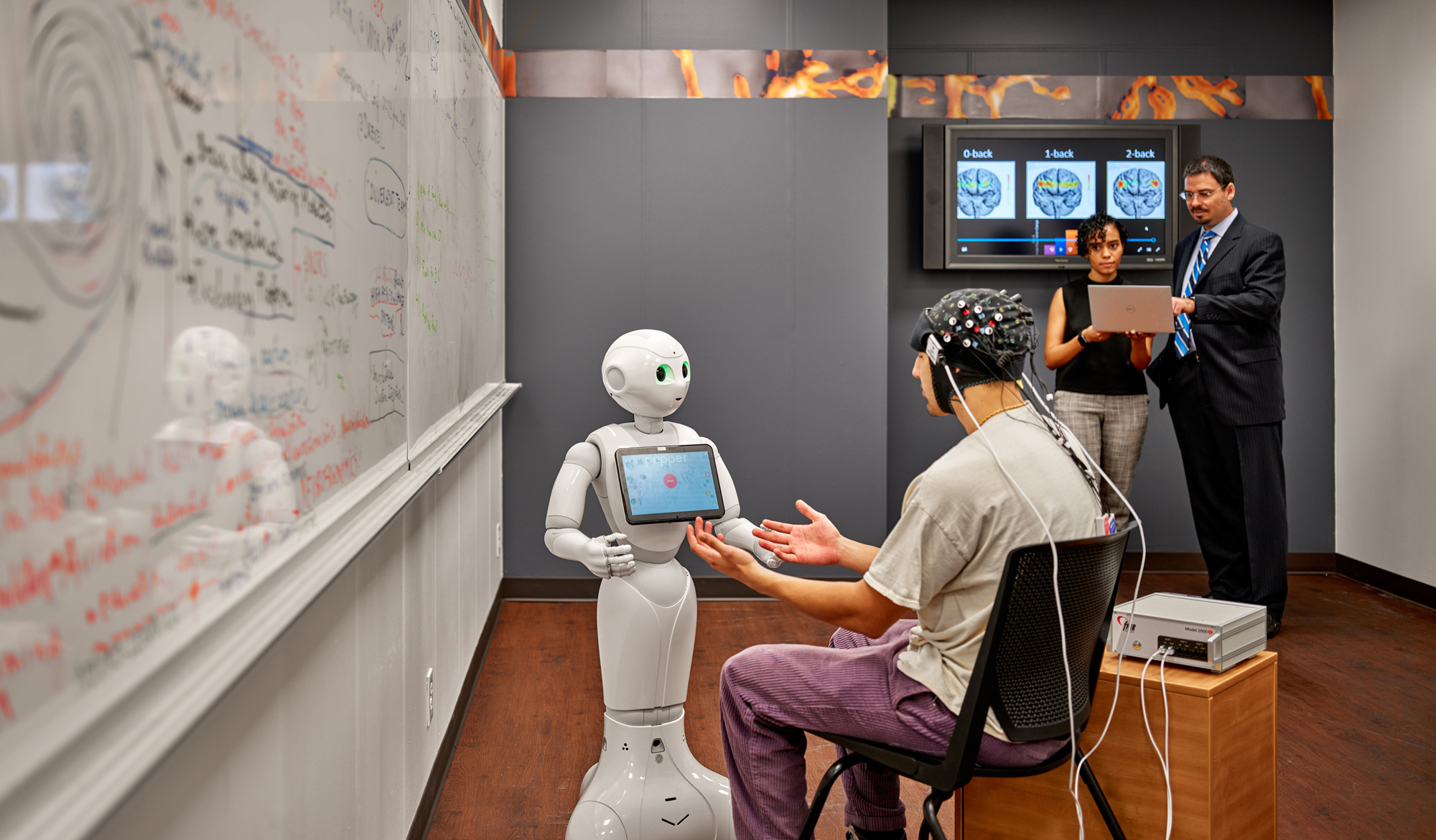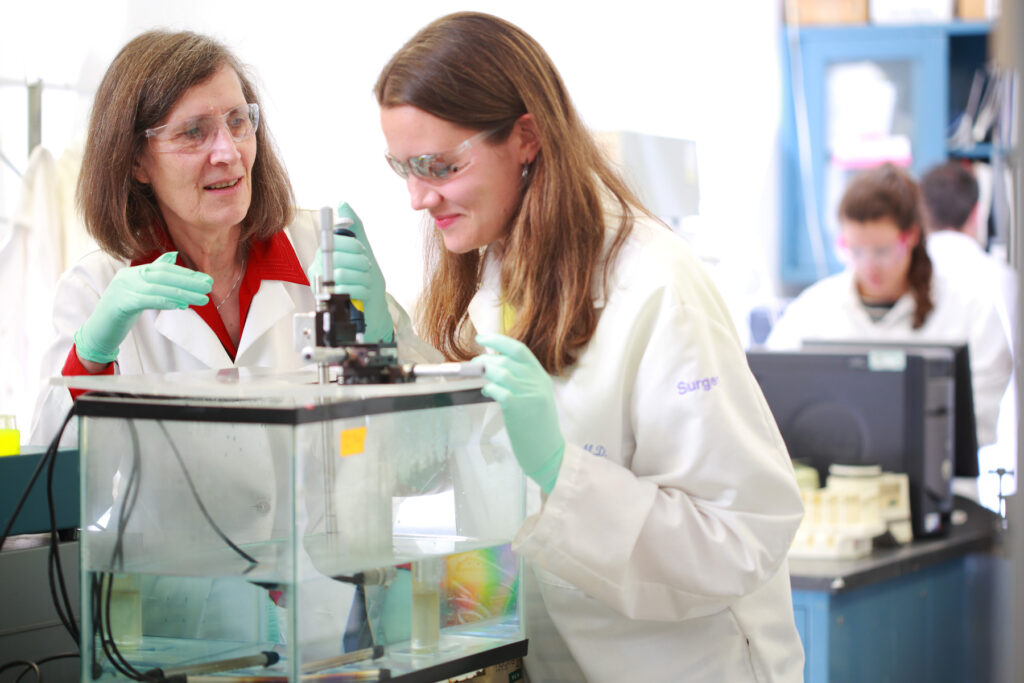
“When Anthony J. Drexel established this University in 1891, his vision was to be highly selective, yet anti-elite,” says Dr. Paul W. Brandt-Rauf. “He wanted to build an institution that had a type of ‘prestige’ that was different from, say, UPenn or Columbia – an institute that trained students to get jobs, start companies, and drive innovation in key industries.” Dr. Brandt-Rauf is Distinguished University Professor and Dean at Drexel University’s School of Biomedical Engineering, Science and Health Systems (‘BIOMED’), the United States’ very first educational centre for biomedical engineering. We met him at his office in University City, Philadelphia to discuss how his School’s unique model is changing students’ and employers’ understanding of value, quality and employability in higher education.

Source: Drexel University
“We wanted to build an institution that had a type of ‘prestige’ that was different from, say, UPenn or Columbia – an institute that trained students to get jobs, start companies, and drive innovation in key industries.”
Dr. Brandt-Rauf
Dean of Drexel University BIOMED
The meaning of ‘value for money’
“Drexel tuition looks expensive, but our model is designed to deliver more financial value to every student.” Dr. Brandt-Rauf is referring to Drexel’s renowned ‘Cooperative Education Program’ or ‘co-op’, which incorporates work placements into the academic schedule, the majority of which are full-time and paid. Students can spend 6 to 18 months of their academic course working full-time at one of the University’s 1,700 industry partners. The gross median annual salary for a Drexel co-op is $20,000, and approximately 50% of Drexel co-op students accept full-time employment with one of their former co-op employers upon graduation. When hired, they are paid a starting salary that is almost 20% higher than the national average for a newly employed worker with a college degree.

Source: Drexel University
In other words, the higher sticker price allows for an education that delivers meaningful short and long-term financial gain. To Dr. Brandt-Rauf, the future of high-quality education isn’t in lowering tuition or making cuts, but in rethinking our approach to what a degree entails. “People get confused between cost and value for money. For us, a truly valuable education needs to incorporate paid employment and foster career success in tangible ways.”
“We produce people that go out into the world, meet technical employer needs and start businesses that stimulate economic and societal progress.”

Source: Drexel University
Real-world impact — merging industry and education
Throughout the student enrollment crisis of recent years, industry has often been considered a challenger to higher ed. Students are asked to choose between a job or a degree – to start earning or pay for an education that delays their ability to earn. Dr. Brandt-Rauf doesn’t see things that way. He believes that the future of education, the job market and even the success of our societies lies in the collaboration of industry and education.
Drexel is leading the way in incorporating work experience, entrepreneurship and skills for employer needs into its curriculum. “Take the co-op for example. Employers use that as a recruitment tool, getting the highly-skilled students they need to help them solve real-world challenges.” From pharmaceutical leaders to gene therapy innovators, these businesses finance summer programs and fellowships for Drexel students and, in return, they get top talent at their companies.
For Dr. Brandt-Rauf, getting talented students in front of investors should also be a core part of a university’s value offering. Through its extensive industry partnerships, Drexel has developed a range of initiatives that fund student start-ups – such as the Baiada Incubator Competition, Drexel Startups Fund, National Science Foundation I-Corps, ic@3401 and the Drexel Coulter Translational Research Program. “Traditionally, the most academically gifted students would dream of getting a grant to write a paper. Our students are pushing to get funding to start their own companies.”

Source: Drexel University
“Cost-conscious students and parents see the sticker price of our programs and get put off,” says Dr. Brandt-Rauf. “Our challenge is to convey the complexities of Drexel’s value proposition in our marketing campaigns.” Several schools and colleges at Drexel have partnered with Hybrid Media to tell their stories. Through personalised remarketing and compelling, outcome-led content, Drexel has been able to more effectively communicate its message and drive enrolment in recent cycles.
Dr. Brandt-Rauf also highlights the importance of in-person connections at all stages of the recruitment journey. For example, Drexel BIOMED is building relationships with local high schools that have engineering programs. “We’re able to work with these talented high schoolers and explain the benefits and pathways of a biomedical engineering degree, as well as the nuances of our co-op and start-up support.” From inviting high schoolers to evaluate his students’ start-up pitches to holding design competitions at his open house events, his recruitment efforts focus on helping prospects to visualise their future at Drexel.

Source: Drexel University
Producing a different type of graduate
We asked Dr. Brandt-Rauf why the world needs more places like Drexel. “Because most people aren’t going to wind up being professors! At some elite universities, faculty teach students as if they’re going to replace them. We produce people that go out into the world, meet technical employer needs and start businesses that stimulate economic and societal progress.”
Follow Drexel University School of Biomedical Engineering, Science and Health Systems on Facebook, LinkedIn, YouTube, X and Instagram.










